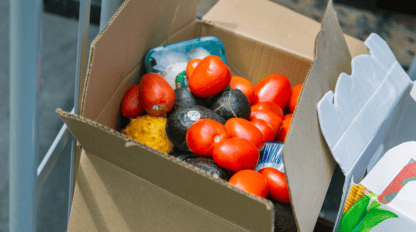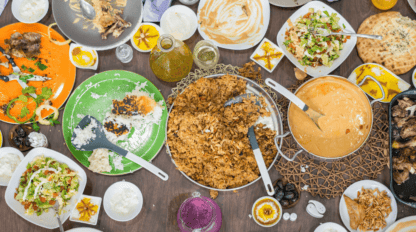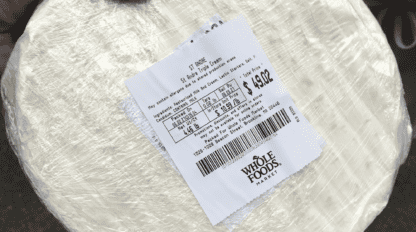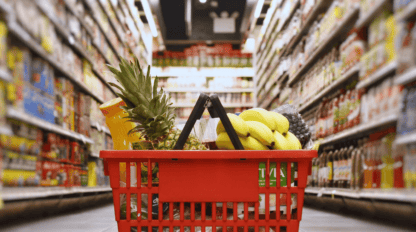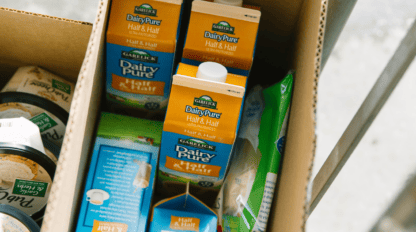Take Action
Earth Month with Spoonfuls
While Earth Month has passed, we know it’s important to take action on wasted food year-round. Revisit this page throughout the year and use the everyday resources here to learn and take action toward minimizing your wasted food footprint.
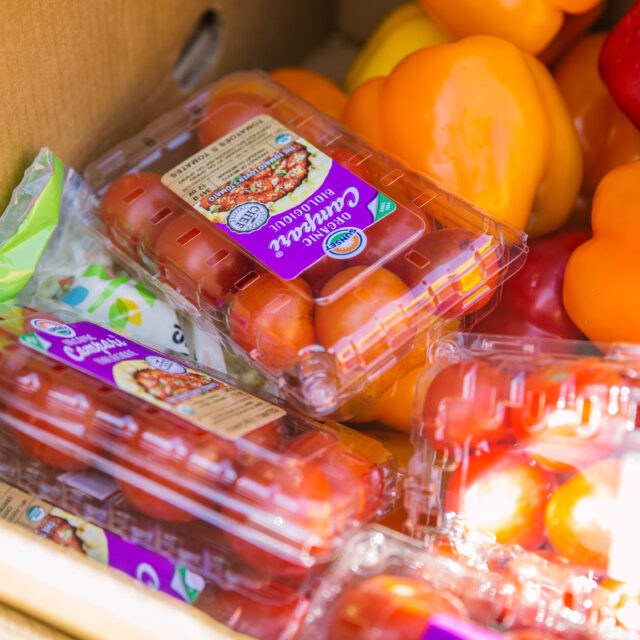
Did you know?
The United States has a food waste problem. It’s a problem for our planet and all of us who live on it.
- 38% of food produced in the U.S. goes unsold or uneaten every year. (ReFED)
- Food waste is the #1 material in U.S. landfills. It makes up 24% of landfilled material. (EPA)
- Surplus food in the U.S. consumes 22% of all freshwater use and 16% of cropland use. (ReFED)
- As wasted food decomposes in landfills, it emits methane, a powerful greenhouse gas. (NRDC)
- Wasted food consumes 6% of U.S. greenhouse gas emissions overall. (ReFED)
While Spoonfuls is focused primarily on preventing wasted food in retail environments (like grocery stores), we recognize that wasted food occurs across our food system. That’s why we are dedicated to spreading awareness about the broader issue of wasted food and the ways we can all play a role in reducing it. The impacts of wasted food on climate are significant, but the impacts of our own actions can be significant, too.
How you can take action
Nearly half of the food that goes to waste in the U.S. each year – that’s 42.8 million tons! – is wasted at home. That means individuals can play a big role in reducing wasted food in the U.S., keeping food out of landfills and using it for its highest and best purpose: feeding people. And with food insecurity at record high rates, and 1 in 6 households in Massachusetts facing food insecurity, putting good food to good use is more important than ever.
Join us throughout the month to take action, spread the word, and make an impact.
Here are some opportunities to learn more about this issue of wasted food and how it impacts our climate, reflect on the role you can take to reduce wasted food, and engage others to help us build a movement towards less waste.
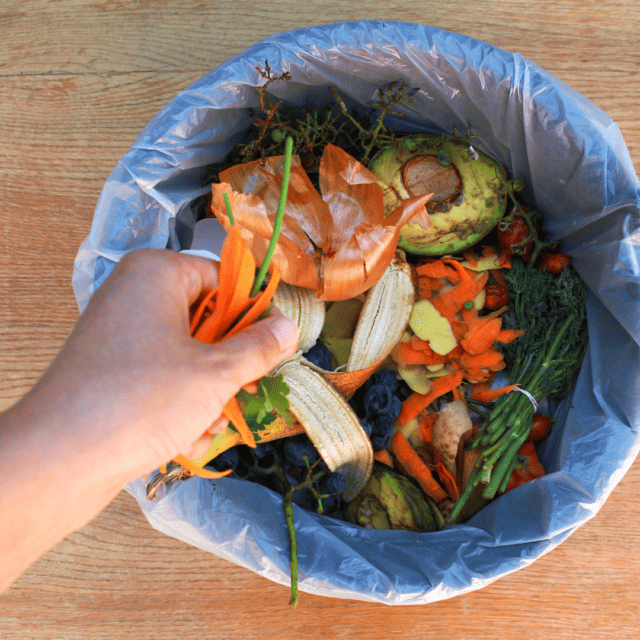
Take our Pledge to Waste Less
Complete the pledge and commit to reducing your wasted food footprint. And use our Personal Wasted Food Audit tool to help you identify the areas where you can make change and waste less. After you complete the pledge, we’ll also send you a copy of the audit and our Advocacy Toolkit direct to your inbox.
Watch our Food Waste Prevention Week Webinar
As part of Food Waste Prevention Week 2024, Spoonfuls hosted a webinar exploring how the issues of wasted food, food insecurity, and the climate emergency intersect. Plus, we discussed everyday opportunities for action.
Panelists
Irene Li: Member, Spoonfuls’ Culinary Board and Chef & Co-Founder, Mei Mei
Christine Beling: Project Engineer, U.S. EPA
Megan Mayer: Assistant Professor & Campus Sustainability Coordinator, Framingham State University
What else?
Systemic change is critical to addressing wasted food, food insecurity, and climate change today and into the future. Think: Things like legislation that standardizes date labels, minimizing confusion around what food is safe to eat.
Use our Advocacy Toolkit to learn more about how you can speak out and build support for longterm solutions to these issues.
Check out the U.S. EPA’s Educating Youth About Wasted Food page for resources. Plus, see below our blog on “Minimizing food waste with a growing family.”
Consider attending a Spoonfuls’ event, making a donation, joining our Community Advisory Board, or inviting us to speak as ways to support and engage with our food recovery mission.
Also, be sure to check out what some of our friends and coalition partners are doing and explore how you can get involved.
- Take action with these or other organizations that share our commitment to improving food access: Massachusetts Food System Collaborative, the Regional Environmental Council, and Project Bread.
- Get involved with local groups working to address food justice in their communities, including the Boston Food Access Council, the Worcester Food Policy Council, and the MetroWest Food Collaborative.
Follow us on social media and sign up to receive our email updates.
